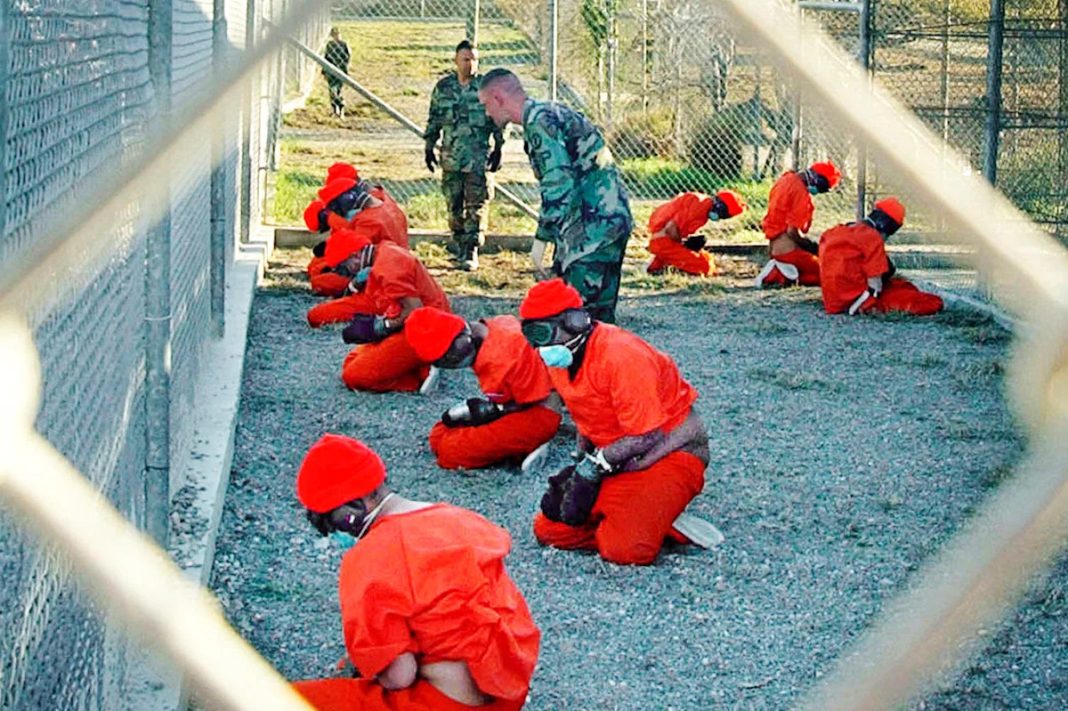It was always going to end like this.
In the aftermath of the Sept. 11 terrorist attack in 2001, President George W. Bush announced a “global war on terror.” Both houses of Congress passed the USA-PATRIOT Act by overwhelming bipartisan majorities, and the national security state was supercharged with new powers. In the years that followed, sweeping executive powers were asserted in the name of counterterrorism, first by Bush and then by President Barack Obama.
Now, President Donald Trump is weaponizing the tools developed in the post-9/11 era to target his domestic political enemies. In late September, he signed an executive order designating “antifa” as a “domestic terrorist organization.” A few days later, he issued a national security policy memorandum (NSPM-7) in which he listed “anti-capitalism,” “anti-Americanism,” “anti-Christianity” and several similar ideological infractions as indications of potential domestic terrorism.
It’s easy to see Trump’s authoritarianism as a rupture from normal American politics. Indeed, in some ways, it is. For all of the right’s paranoia about IRS investigations into Tea Party groups under Obama, or their complaints about the overly zealous prosecution of participants in the Jan. 6 riot at the U.S. Capitol in 2021, there really is no meaningful equivalent of what Trump is doing in recent American history.
To find a level of repression against domestic dissent similar to what seems to be promised by Trump’s most recent moves, you’d probably have to go back to the era of McCarthy hearings and loyalty oaths (or, at the very least, the era of the FBI’s infiltration and disruption of the Vietnam-era New Left).
But the seeds of what Trump is doing were planted and nurtured by presidents of both parties during the “war on terror.”
In the post-9/11 framework, the entire planet was considered to be a battlefield, albeit a very strange one where neither the normal laws of war nor normal criminal laws quite applied. Suspected terrorists could be declared “enemy combatants” and locked up without either trials or the standard protections given to prisoners of war. Under Bush, they were subjected to “enhanced interrogation” (i.e., torture).
That practice, at least, was abandoned by Obama (although the CIA’s torturers were never legally punished). Another Bush innovation, though, was continued and even expanded first under Obama and then during the first Trump administration. Outside of the U.S., suspected terrorists far from any battlefield could be assassinated with unmanned drones while sitting in cafes or relaxing at home in places like Pakistan and Yemen.
Now, in the second Trump administration, we’re seeing the president enthusiastically using these king-like powers against a variety of new targets. He’s using the idea that “enemy combatants” exist in a gray zone outside of either domestic laws or the laws of war to justify blowing up Venezuelan boats based on the suspicion that the people on them are drug runners. That suspicion, needless to say, isn’t being tested by any sort of court or oversight body. And on the domestic front, he’s sending some deeply ominous signals.
It’s unclear what, if anything, the direct legal import is of designating “antifa” as a “domestic terrorist organization.” First, “antifa” is not the name of an organization, but a loose label for a political subculture of “anti-fascist” activists. Second, the phrase “domestic terrorist organizations” has no legal meaning within the current laws of the United States. But with or without a special legal category for the purpose, we know exactly what kind of tactics the federal government has felt comfortable in using to pre-emptively bring down people it considers potential domestic terrorists since the beginning of the “war” on terrorism.
As journalists Glenn Greenwald and Andrew Fishman put it in a 2015 article for The Intercept, the government’s practice in many such cases has been to target some young Muslim man, “not due to any evidence of intent or capability to engage in terrorism, but rather for the ‘radical’ political views he expresses.” The target is usually an aimless and unemployed loner. An FBI informant then “induces, lures, cajoles, and persuades the target” to participate in some nonexistent terrorist plot. When the target finally gives in, he’s arrested with great fanfare. This is a pattern we’ve seen over and over again in court records.
Is the sort of thing that’s now going to be done to the kind of young left-wing activists gestured at by the vague and fuzzy “antifa” label?
The terrorist “designation” certainly signals more scenarios like this could be on the table. Even more worryingly, NSPM-7 calls everything from “anti-capitalism” to “extremism on migration” to “hostility towards those who hold traditional American views on morality” warning signs of potential domestic terrorism and promises “to investigate and disrupt networks, entities, and organizations that foment political violence so that law enforcement can intervene in criminal conspiracies before they result in violent political acts.”
That word “before” should set off all kinds of alarm bells, especially when the beliefs being tarred with association with violence and terrorism are so broad and vague they could be associated with wide swaths of anti-Trump opinion.
This is new. But we also should have been able to see it coming.
Once the decision was made in the aftermath of 9/11 to treat “terrorism” as a giant zone of exemption from normal laws and protections and vest whoever happened to be president with vast emperor-like powers to fight anything classified as “terrorism,” this swung the door wide open for future authoritarians like Trump to use it to attack their domestic political opponents.
Perhaps everyone simply trusted that future presidents would be too principled to walk through that open door.
If we were going to trust in that, though, why would we need a constitution at all?
This article was originally published on MSNBC.com

